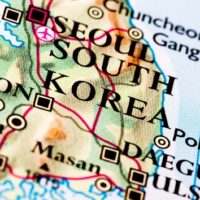
nigelcarse/iStockBy HAKYUNG KATE LEE, ABC News
(SEOUL, South Korea) — It’s a chilly, silent Thursday morning. Thousands of students, warmly dressed in padded jackets, hasten their steps to schools which have been closed and disinfected for a week in the lead-up to a momentous event in South Korea: the national college entrance exam.
The exam, officially called the College Scholastic Ability Test, provides South Korean students a final report card for the public education they received from elementary school through high school. The results of this annual exam play a big part in determining to which university students can apply.
But this year, with COVID-19 upending traditional protocol, exam inspectors dressed in hazmat suits greet applicants with hand sanitizers and thermometers.
Before the COVID-19 outbreak, the exam day would be filled with exuberant cheering squads at the school gate, and parents handing out snacks or praying outside the school until the exam ends.
In fact, the entire nation celebrates the event. Authorities clear air traffic to make sure the exam’s listening sections are done in a silent environment. Businesses, including the stock market and public facilities, also open an hour late so students can make it to their test sites in less traffic.
This year, however, is different. Social distancing and a heavy focus on hygiene have replaced the celebrations.
“My daughter is taking the exam for the third time, and I am just relieved that she wasn’t diagnosed with COVID-19,” Kim Migyeong told ABC News. “Our whole family was nervous that one of us may be infected without symptoms and spread to our daughter, already exhausted with a long-term prep for examination.”
“I wish for the best, although this year high school seniors have had a hard time taking classes online and staying home to avoid COVID-19 infection,” Michelle Oh, who stood in front of Yangjae High School to send her son off to take the exam, told ABC News. “I saw on the news that confirmed patients can also take the exam, but there aren’t any alternatives for university interviews, so it’s best to avoid the virus.”
This year, authorities have prioritized preventing cluster infections from inside test sites.
At the entrance of each site, supervisors take students’ temperatures twice, and for the first time in exam history, a semi-transparent acrylic panel is glued to each desk to prevent potential droplet infection.
“We are operating a 24-hour emergency workforce under cooperation of the Ministry of Education, the Korean CDC and the local government ahead of the exam,” vice minister of education Park Baegbeom said in a briefing Wednesday. “The Ministry of Education will do its best to ensure that all examinees take the exam in a safe environment.”
Exam inspectors, dressed in hazmat suits, ensure there are no conversations during lunch and break times, and that students’ masks are on at all times during the exam — all of this on top of their main duty of handing out exam papers and watching for cheaters.
Applicants who did not pass the temperature checks at the gate were still given a chance to take the exam, but at a separate testing site within the school for closer monitoring.
The Ministry of Education also secured 205 hospital beds across the country for COVID-19 patients and a total of 35 applicants who tested positive for coronavirus actually took the exam in a hospital negative-pressure room.
“There are 29 hospitals for confirmed COVID-19 patients, and 113 separate test centers for applicants under self-quarantine,” Sung Ki-Sun, an official from the Korea Institute for Curriculum and Evaluation overseeing the exam, said in a press briefing Thursday.
A total of 387 applicants in quarantine took the exam in a separate facility. Those without rides were brought to the test site by disinfected vehicles or ambulances.
Nearly half a million students — 490,000 — took the exam this year; 10% less than last year and the smallest number of applicants since the exam began in 1994.
Copyright © 2020, ABC Audio. All rights reserved.















